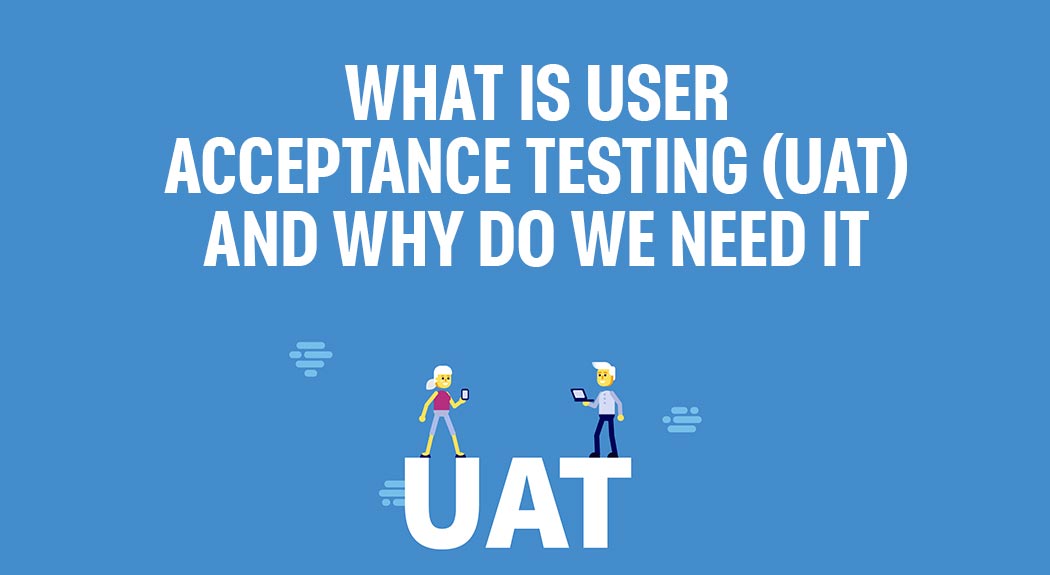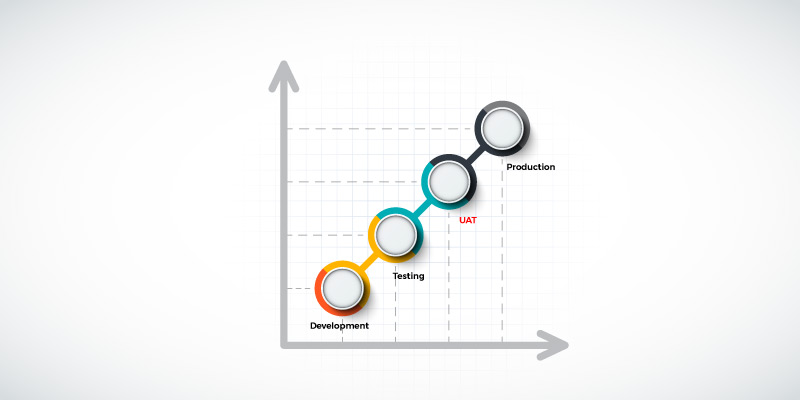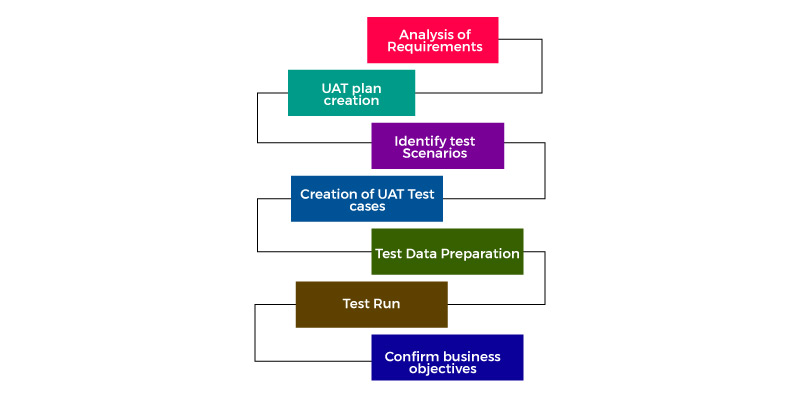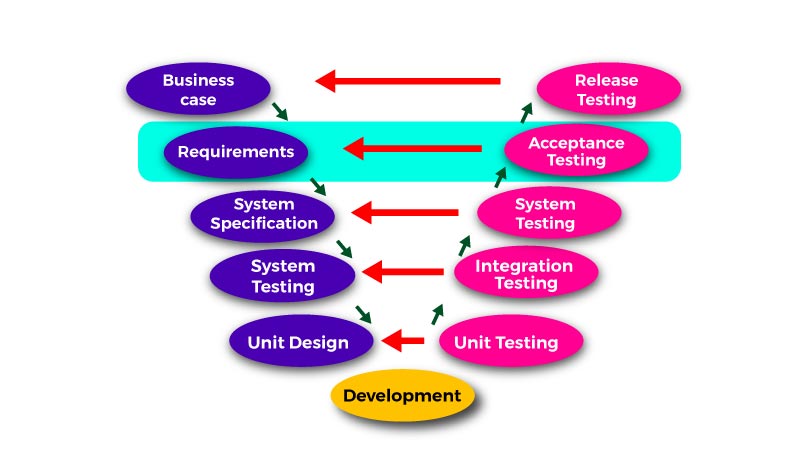
Among different fields in the IT sector, software testing has never seen a downfall in its growth. Software testing is a sought-after career in the IT industry. In our everyday activities, we have been using apps and are frustrated by the number of bugs it has. You might have guessed how vital a software tester's job is.
If you want to become a software tester, you can join Software Testing Training in Chennai and learn Waterfall model, V model, Incremental model, RAD model and Agile model.
If you are interested in starting your career in software testing and find it the right job for you, you can begin your career without any hindrance. But many of us are from non-technical backgrounds and think we cannot become software testers. Having an IT or computer science degree is not mandatory.
If you are freshers, take a software testing course, gain the knowledge of software development and begin your career. Moreover, as you are heading your career in the software field, you should be innovative and have the ability to work with different software.
For those without an engineering background, the job involves a significant amount of documentation, which might be intimidating. But of your interest, you can learn it. According to the survey, it is stated that many software-based companies are looking for skilled professionals, and that more than 6000+ jobs are unfilled, and it remains questionable. So, skilled people are always qualified to become software testers.
If you want to become a software tester, having a comprehensive understanding of selenium automation testing would help you begin your career as a software tester or UAT tester. So, join Selenium Training in Chennai and learn SDLC.
In this blog, we shall go through who performs the acceptance testing, UAT server, the main focus of acceptance testing and what test mail is.
What is user acceptance testing (UAT)?
User acceptance or application testing, or end-user testing, is the phrase for the software testing process.
What is UAT?
User Acceptance Testing (UAT) is a testing in which the end-user or customer evaluates and approves the software system before it is moved to the production system. After the function, integration, and system testing, UAT is performed in the final testing step.
Purpose of UAT
The predominant purpose of software testing is to evaluate end-to-end business flow. It is not concerned with visual flaws, misspellings, or the testing phase. User Acceptance Testing is performed in a different testing environment with data similar to that used in production. Two or more end-users will be participating in this type of black-box testing.
If you want to become a manual tester, join Manual Testing Online Course and learn testing methodologies, and types of manual testing.
Who performs the acceptance testing?
These are the main focus of acceptance testing. Now, we shall discuss Acceptance Testing and V-Model.

The main focus of acceptance testing
After Unit testing, Integration testing and System testing, the acceptance testing will take place. It is because software developers would have built the software based on their understanding and requirement documented to them. So, for further changes and to release the final product, acceptance testing and end-user testing are required.
Acceptance Testing and V-Model

Acceptance Testing and V-Model in detail
User acceptance testing is necessary for the Software Development life cycle in VModel (SDLC).
Prerequisites of User Acceptance Testing
-
Document requirements must be available
-
Application Code must be developed completely
-
System Testing, Integration Testing, and Unit Testing have to be completed.
-
Before UAT, only minor errors are permitted.
-
There should be no significant flaws in the regression testing.
-
Before UAT, all reported defects should be rectified and tested.
-
All testing processes should have been documented completely.
-
It is necessary to prepare for the UAT environment.
-
The system is ready for UAT execution, as evidenced by a sign-off email or message from the System Testing Team.
If you are interested to learn about appium tools, you can join Appium Online Training and have in-depth understanding of features of Appium, advantages of appium and benefits of using appium.
UAT Process

How to do UAT Testing
User Acceptance Testing is a type of software testing, and the intentional users of the software do it. Beta Testing is a sort of software testing that usually takes place at the client's location. Once the admission criteria for User acceptance testing have been completed, the testers must meet the following tasks:
-
Examine the Business Requirements
-
Create of User Acceptance Testing test plan
-
Determine Test Methods or environment
-
Develop User Acceptance Testing Test Cases
-
Prepare Test Data and run the test cases
-
Keep a record of the outcomes.
-
Confirm the company's goals.
Step 1) Analysis of Business Needs
The main focus of acceptance testing is examining and creating test scenarios. The test scenario emanated from the following documents- System Requirements Specification(SRS), Business Use Cases, Business Requirements Document(BRD), Project Charter and Process Flow Diagrams.
Step 2) Create User Acceptance Testing Plan
The User Acceptance Testing plans determine the business requirement and help them evaluate the business and end-user needs. It outlines UAT acceptance and exit criteria, test scenarios and cases, and testing schedules.
Step 3) Determine Test Scenarios and Test Cases
Before creating a test scenario, interact with the business team and generate the test cases with a comprehensive test process. Most importantly, the User Acceptance Testing scenario must have covered all types of test cases. Finally, the output of the product must be addressed to the business.
Step 4) Preparation of Test Data
For User acceptance testing, it's best to use real-time data. For privacy and security concerns, data should be jumbled. The database flow should be familiar to the tester.
Step 5) Record the results:
When running the test, implement test cases and report the vulnerability. So, after finding bugs, rerun the test and fix the bugs. Most importantly, utilise the test management tools for execution.
Step 6) Confirm that the business objectives have been met
After UAT testing, Business Analysts or UAT Testers must submit a sign-off email. The product is ready for production after sign-off. Test Strategy, User Acceptance Testing Scenarios and Test Cases, Test Results, and Defect Log are all deliverables for UAT testing.
Qualities of User Acceptance Testers:
To become a UAT tester, you should better understand business processing. If you are a UAT tester, you should think and act independently to provide unique user features. Think analytically about the business requirement and prepare the test scenario.
Intended to become a software tester without any prior experience, join Software Testing Course in Bangalore and learn STLC - Software Testing Life Cycle and Software Lifecycle Models.
Best Practices
-
Prepare UAT plan early in the project life cycle
-
Prepare Checklist before the UAT starts
-
Conduct Pre-UAT session during System Testing phase itself
-
Set the expectation and define the scope of UAT clearly
-
Test End to End business flow and avoid system tests
-
Test the system or application with real-world scenarios and data
-
Think as an Unknown user to the system
-
Perform Usability Testing
-
Conduct Feedback session and meeting before moving to production
User Acceptance Testing Tools
Types of Software Testing
-
Accessibility testing
-
Acceptance testing
-
Black box testing
-
End-to-end testing
-
Functional testing
-
Interactive testing
-
Integration testing
-
Load testing
As we have discussed above, who performs the acceptance testing, the main focus of acceptance testing and test mail meaning. If you want to become a UAT tester, you can join Selenium Training in Bangalore and learn how to prepare the Test Plan document, Clarification Document and UAT server.